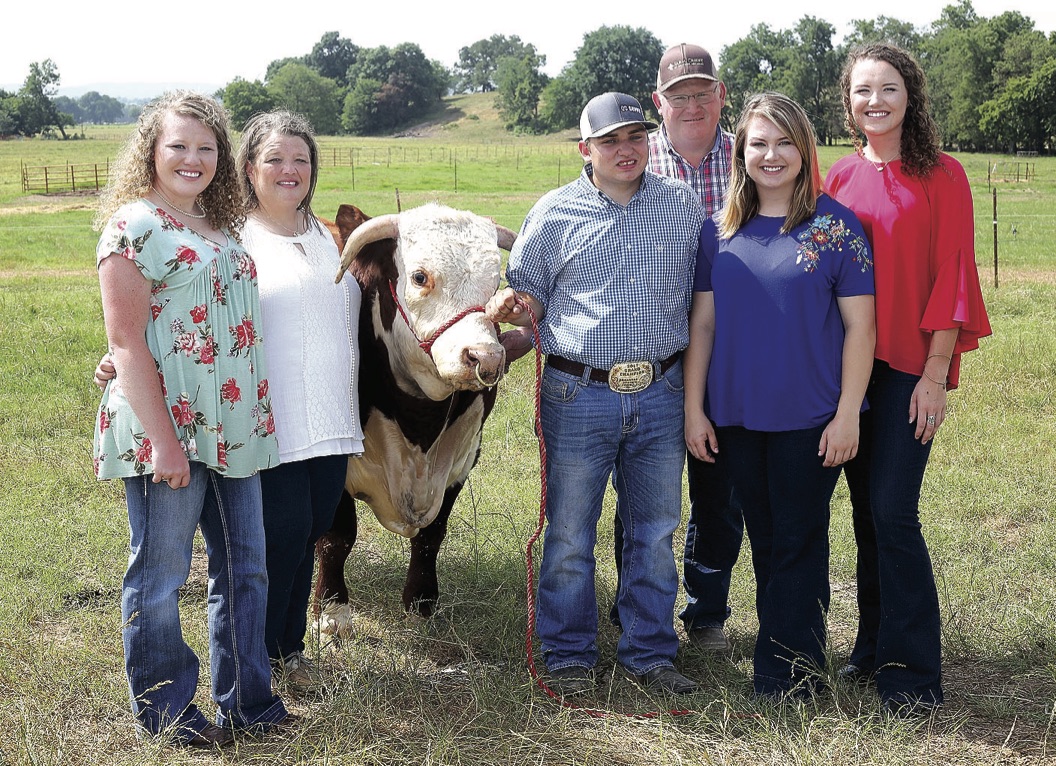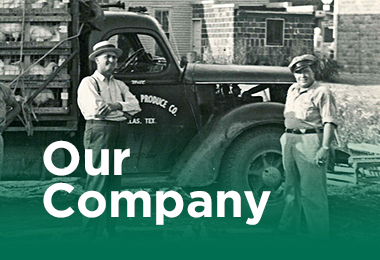Arkansas Farm Bureau recently recognized the Moyers as the Washington County 2018 Family Farm of the Year. In addition to being a contract grower for George’s, Inc. and raising cattle, the Moyers continue to mentor young men and women at their farm.
Q) What do you raise on your farm?
Dyanna: We have four George’s Broiler Houses, which we built in 2012. We also have 100 acres and 60 registered Hereford cows.
Jerry: We raise children on our farm. Whether it’s our kids or someone else’s kids, I think that’s probably the most important aspect of our farm for us.
Q) When did you first learn about farming?
Jerry: J.O. and Marie Parker owned property near me growing up, and they raised registered Herefords. They didn’t have any children and needed help. My dad passed away when I was four, and J.O. took me under his wing. Basically my second set of parents. That was my education in cattle.
Q) Tell us about your daughters, how are they continuing the family tradition of agriculture?
Dyanna: Chyanne got married at the end of June. She attended Kansas State on a livestock judging scholarship and graduated with her master’s degree in agricultural education. She and her husband are both teaching agriculture at the Renwick, Kansas school district and started an Future Farmers of America (FFA) program for their district.
Caleigh Sue graduated from SAU with a bachelor’s in agri-business and is now getting a master’s in supply chain management. She was a State FFA officer and got a scholarship through the poultry federation. She’s very active in the Agri Club, a full-time recruiter and is going to be a residential director.
Q) How have you personally mentored the next generation of farmers?
Jerry: We’ve helped kids in agriculture clubs with swine projects, land projects and lots of cattle projects. We also have a young man who lives with us now, Paul.
Dyanna: Paul was 15 when he started with us. He grew up in town with no agriculture background whatsoever, but he just jumped right in.
We encouraged him to get involved in Future Farmers of America, and he immediately took to it. In fact, he was on the meats judging team that won state this year.
With our two girls, we had already familiar with the available scholarships for agriculture students. So when he began applying to college, we were able to turn him on to those opportunities.
Jerry: He’ll attend South Arkansas University in the fall on full scholarship. He has a meal plan and housing. He’s pretty happy.
Q) How did Paul come to work at your farm?
Jerry: We were washing chicken houses, and we hired a kid who asked if he could bring a buddy along. We said, “Sure. The more the merrier.” He brought Paul along, and it didn’t take long at all to realize that he was just a really good worker, and he really wanted to be there.
Dyanna: He has worked so hard for everything. He’s helped with cattle, bailed hay, drove a tractor, and he’s learned so much about servicing and maintaining equipment. We gave him a lot of tools to work with, but he did it on his own. Now he will be the first person in his family to go to college.
Q) Why do you feel it’s so important to educate the youth about agriculture?
Dyanna: I work in the public schools. I have an advisory group of twelve kids I see everyday. I ask at the beginning of the year, “where does your food come from?” They say “McDonald’s” or “Walmart.”
I try to bring attention to what people go through to provide food for them, before it gets to McDonald’s and Walmart.
Q) How involved is your family in agricultural organizations?
Dyanna: Jerry is on the board of the Washington County Fair. He’s also been involved in 4-H and FFA in one way or another all his life. So our girls got involved since they were around 5-years-old, starting with showing cattle.
We have a niece that we’re really close to, Dixie. She graduated from Farmington High School, went through FFA and livestock judging. She got a scholarship at Hutchinson Community College in Kansas.
She’s also from town, didn’t live on the farm, but has been involved with ours and now shows cattle at the national level. Next week she flies out to San Francisco to the National Hereford Youth Leadership Conference.
We’re always encouraging the kids to go to things like that. Be a kid! Make connections in the agri industry that may help you later.
Q) How important is the sense of community among farmers in Washington County?
Jerry: It’s huge. We try to always help out when we can. I know a lot of the George’s growers. We’re all close knit and intertwined. We’ll always help each other out if we can.
Dyanna: That’s something we try to instill in the kids who work with us. Always be there when you can to lend a helping hand. That’s how we pay it forward, and some day they’ll be there for you.
Q) How did poultry farming help you achieve your agricultural goals and personal goals for your family?
Jerry: The poultry houses have helped put our girls through college, and helped put Dixie and Paul through college. We’ve also been able to grow our cowherd through the poultry houses.
Q) What is George’s reputation in the farming community?
Dyanna: When Caleigh Sue was a state FFA state officer. She took a video of the trucks pulling in to our farm with chickens and posted it on social media. One kid commented and said “George’s! They’re the best. You picked the right company to grow for.””
Recently we told someone else we were growers for George’s, and they said it was the best to grow for. They treat you the best.
Q) How does George’s play a role in your farm?
For us, it’s an important role. They have to be sound so they can pay us as growers what we need to stay in business. They have to be productive and make money as much as we need to make money. We all have to pay bills, to make food for the people. They have just as much at stake as we do.
My experience at Georges has opened a lot of doors for me.
Q) In what ways have you seen farming change over the years?
Jerry: When you look at pictures of the chickens from the 1980’s and compare (the size of) them to today, it’s a big difference. In my mind, I know that’s just God’s way of feeding his people. That’s what I account to it. I believe He has to feed his people. And the more of us there are, the faster we have to be at producing food.
Q) What does the future hold for the Moyers?
Jerry: We just want to keep doing what we’re doing with the farm and helping kids along the way.
Dyanna: We try to keep paying it forward the way J.O. helped Jerry.


